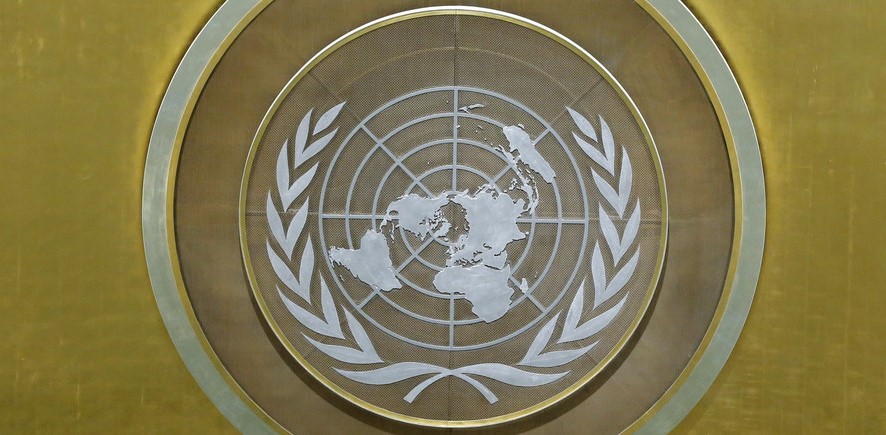(4 Minutes Read)
Pleas for additional and permanent seats for Africa reverberated at the UN Assembly. Many feel that it may come sooner or later unless there is a slip between the cup and the lip. It is expected that the grand plan of the African Development Bank to ramp up the development process to address the gaps in the financial architecture may get some support.
The 79th UN General Assembly (UNGA) 2024 just concluded in New York. It is time for analysts to ponder over the significant takeaways of the long deliberations and consultations. There is also a veiled criticism about the outcome that it belied the expectations. That debate will go on for a while since the agenda for the UNGA 2024 was diverse and futuristic as captured in its theme: “Leaving no one behind: acting together for the advancement of peace, sustainable development, and human.”
What was the most significant takeaway for Africa? Is it the exalted promise of democratization of the UN structure and format to give more representation to those regions that have been bypassed so far? Pleas for additional and permanent seats for Africa reverberated at the Assembly. Many feel that it may come sooner or later unless there is a slip between the cup and the lip. It is expected that the grand plan of the African Development Bank to ramp up the development process to address the gaps in the financial architecture may get some support.
The plea to turn the Sahel region into a hub of solar energy to meet the clean energy needs of the continent is a welcome ideation that can lift the most backward region in the world from the perils of poverty and violence. The promise dished out by the Outgoing US President Joe Biden that the U.N. needs to adapt to bring in new voices and new perspectives while underscoring the need for reforming and expanding the membership of the U.N. Security Council might have come as a waft of fresh air to many. But no one knows precisely what will be the outcome of the November elections in the US.
While atrocities and human rights violations in Sudan reverberated in the discourse, could the UN come up with any tangible solutions for preventing the occurrences of such sinister events which had already taken precious lives and rendered millions displaced? African leaders spoke eloquently on reforms in the UN to ensure a greater say for the continent. Yet, not much has been talked about either on or off the Assembly, the need for introspection among African leaders for electoral reforms, and the accountability of the political leadership. Corruption, lack of political accountability, sporadic coups, perverse desire to cling on to power by hook or crook, etc have been impeding the growth process.
As every African leader at the UNGA argued for more attention, it coincided with the release of a study by the African Private Equity and Venture Capital Association (AVCA) on the state of ‘private capital activity in Africa during the half-year that ended June 30. The study results need a close look. It showed that large deals of USD 100 million and above have been heavily hit by the ongoing capital squeeze in the continent. The financial sector in the continent is a major casualty in the process. This trend has been flagged not alone in this study, several other reports are indicating Africa is grappling with an unprecedented slump in new investments due to tight market conditions and heightened investor uncertainty.
This has caused fund managers to abandon large deals in the face of declining availability of private capital. This will cause a severe impact in many sectors including employment generation. Of late, the Western bloc is insisting that the private sector should be given more importance in the development process of Africa. One should imagine in the closed-door meetings of the UN officials and other developmental agencies like the World Bank, IMF, AfDB, etc on the sidelines of the Assembly this point must have been discussed threadbare at least to know the reasons behind such perverse traction.
Closely linked to this issue are youth unemployment, poverty, nutritional issues, lack of educational facilities, and importantly healthcare issues. One can argue that the UNGA has discussed the Social Development Goals (SDGs) in their entirety at the recently concluded Assembly. But facts remain that no appreciable ground has been covered in fine-tuning the social and physical infrastructure to achieve the target set. It is time to think about creating a watchdog to monitor the developments in a realistic manner, which should be an independent body above the purview of the respective governments.
Climate change was a topic discussed and concerns were expressed. The apprehensions of small independent island nations were pitched up in high decibels. The pittance that is spent on addressing their ecological problems and a receding landmass that is gradually submerging should have received more traction at the assembly.
What are the takeaways of the UNGA 2024? If one is given the freedom to paraphrase what had happened in the General Assembly, it may not be wide off the mark to say that every contracting party, least developed, developing, and developed, wanted to Reimagine the UN. That seems to be the consensus, though how it will be carried out may trigger differences.





